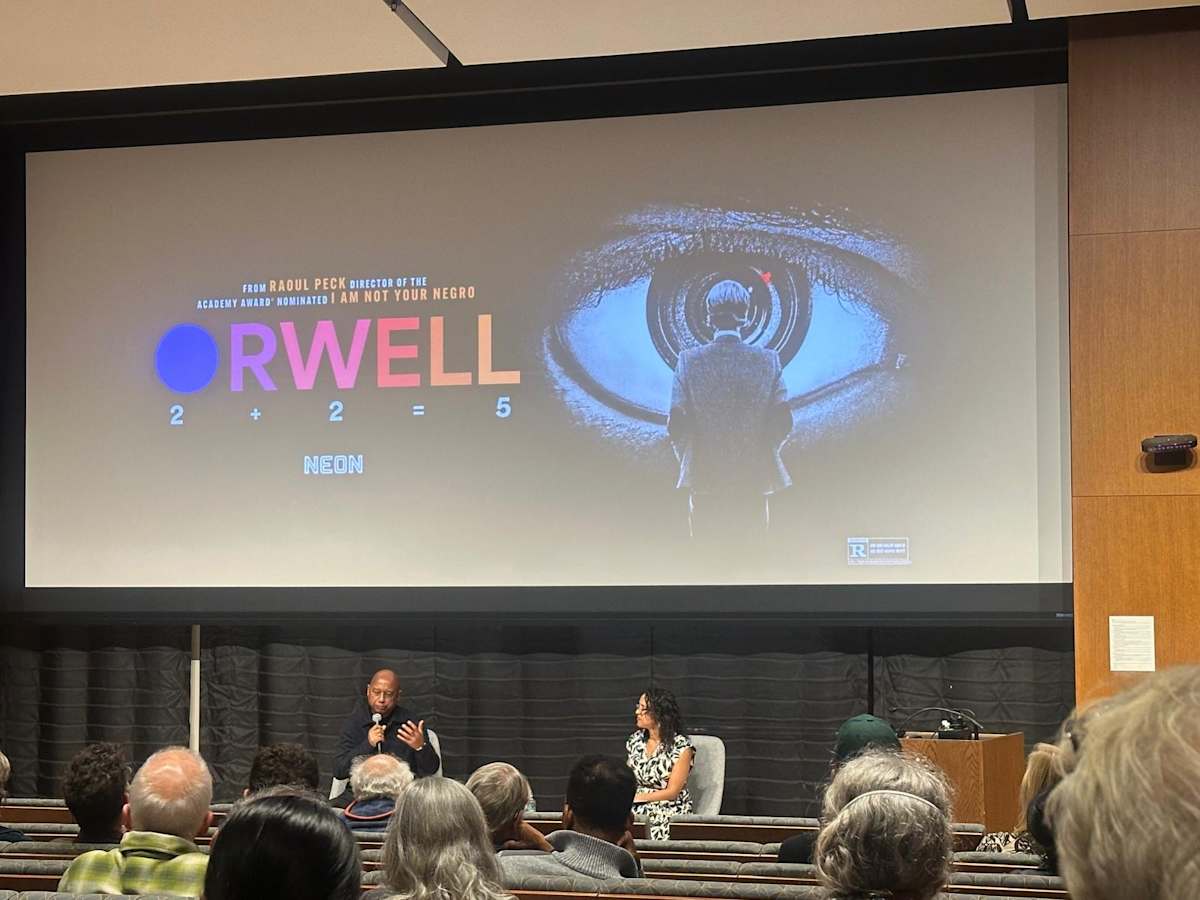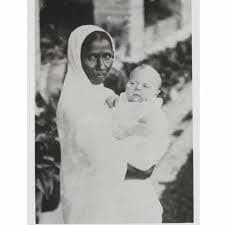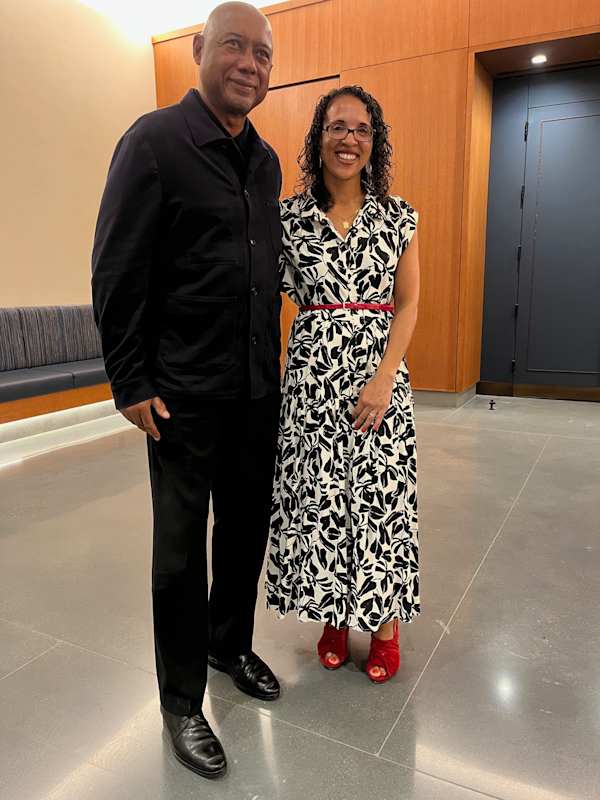This past Wednesday (Oct. 1, 2025), I had the very special opportunity to moderate a discussion at Yale's Whitney Humanities Center with the renowned Haitian filmmaker Raoul Peck, following a screening of his latest film, Orwell: 2+2=5. The film journeys into the life and mind of the famous British author George Orwell (real name, Eric Arthur Blair). One of the things we discussed in the Q&A is how Orwell is often referenced or evoked as a dystopian writer and an anti-fascist, for giving us phrases like Big Brother and Newspeak. Some of Orwell’s most famous lines from his most famous novel 1984, in fact, are repeatedly evoked in the film, including “War is Peace” and “Freedom is Slavery.” But here, Peck shows us a different side of Orwell, the anti-colonial side, if you will.
Peck begins the film with a very powerful photo, one that I had never seen before, of Orwell as a stark white baby, being held by his Black Indian nanny. Orwell was born in British-occupied India, we learn, and then, as a nineteen-year-old, he served in the colonial militia in Burma (present-day Myanmar). His experiences serving in the English army in Burma turned him into an anti-colonialist and definitively shaped the powerful critic he soon became. Orwell concluded after not just witnessing but himself participating in the inherent violence of Britain’s colonialism: “In order to hate imperialism, you’ve got to be part of it. But it is not possible to be part of such a system without recognizing it as an unjustifiable tyranny.”
(George Orwell with his nanny, name unknown)
Orwell’s voice (performed by actor Damian Lewis) accompanies the viewer throughout. According to Peck, except for a couple statements at the beginning and then at the end, everything Orwell says is derived from his own letters, diaries, novels, and other writings. This is fitting for a film that ends with the words, “All that is important has already been written.”
As someone who regularly teaches Peck’s three-part HBO series on the history of colonialism and its ongoing consequences, Exterminate All the Brutes, I greatly enjoyed the opportunity to not only meet Peck, but gain insight into his process as a writer and a filmmaker. For example, he reiterated a few times that his films tackling single figures, like James Baldwin (I am Not Your Negro) and Karl Marx (Young Karl Marx), are not biographies. Peck prefers the term creative documentary. Peck also eschews the terms “narration” and “voice-over” to describe the storytelling aspect, insisting that Lewis’s role in Orwell, for instance, was acting, in other words, a performance.
(Raoul Peck and Marlene L. Daut, Whitney Humanities Center, Yale University, October 1, 2025)
The creative process, my own and that of others, has been on my mind quite a lot lately, as I’ve been wrestling with the idea of art and responsibility. For me, publicly denouncing ongoing colonialism (particularly, in Haiti), whether in my writing or in the classroom, is just as important as denouncing slavery, fascism, and war. There is no other conclusion: Colonialism =Genocide.
As the Martinican poet, playwright, and philosopher Aimé Césaire wrote in his immensely important Discourse on Colonialism, “Colonization: bridgehead in a campaign to civilize barbarism, from which there may emerge at any moment the negation of civilization, pure and simple.” And as Peck reminded us in Exterminate All the Brutes, “It’s not knowledge we lack. You already know enough. What is missing is the courage to understand what we know.”
I will leave you, then, with one of the most important passages from Albert’s Camus’s Create Dangerously, about why we writers, artists, filmmakers, musicians, and creators of all kinds, have an absolute imperative to keep right on creating (and critiquing) in the midst of all the current suffering and brutality of our world: “Freedom alone can save humankind from isolation, and isolation in its many forms encourages servitude. But art, because of the inherit freedom that is its very essence, as I have tried to explain, unites, wherever tyranny divides. So how could it be surprising that art is the chosen enemy of every kind of oppression? How could it be surprising that artists and intellectuals are the primary victims of modern tyrannies, whether they are right-wing or left-wing? Tyrants know that great works embody a force for emancipation that is only mysterious to those who do not worship art. Every great work of art makes humanity richer and more admirable, and that is its only secret. And even thousands of concentration camps and prison cells cannot obliterate this deeply moving testimony to dignity.”
<How to cite this article: Marlene L. Daut "'You Already Know Enough': Raoul Peck on Orwell and Anti-Colonialism," King of Haiti's World Blog, October 4, 2025, https://marlenedaut.com/blog/you-already-know-enough-raoul-peck-on-orwell-and-anti-colonialism-this >


